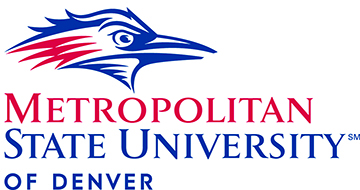by Robert Davis
A record number of minimum-wage workers at Metropolitan State University of Denver (MSU) received $130,442 in back pay for lost wages after a Denver Labor investigation found the university unintentionally misclassified the employees.

849 employees received the restitution on October 30, 2020. Many of the employees impacted were students working part-time in admissions, student orientation, and student activities departments.
The restitution came out of MSU’s reserve fund, according to the university’s finance department, and covers lost wages dating back to the beginning of the year.
Denver Labor began its investigation in March after a MSU employee submitted a claim to its office. During the investigation, the agency obtained payroll records showing several MSU employees were paid the state minimum wage of $12 per hour instead of Denver’s bottom wage of $12.85.
“Initially, the university’s officials incorrectly believed they were exempt from the citywide minimum wage law because they were state of Colorado employees,” the investigation report reads. “However, the city ordinance clearly says all work performed within the geographical boundaries of the City and County of Denver is covered by the minimum wage requirements.”
Scheduled increases of the minimum wage will push it up to $14.77 per hour next year, and then to $15.87 in 2022. These “unfunded mandates,” as MSU’s Associate Vice President for Administration/CFO George Middlemist describes them, put a strain on the institution’s resources, especially in the wake of the COVID-19 pandemic.
A combination of declining enrollment rates and state funding cuts caused MSU to lose $16 million in funding for the 2020-2021 school year. Middlemist said the institution already holds Colorado’s lowest per pupil funding rate, and the cuts make it harder for MSU to operate.

Middlemist said the amount of backpay added to each employee’s October 30 paycheck was modest but is “certainly an important amount for them as we all struggle during this crisis.”
“We went into this knowing we wanted to do right by our employees and our students,” Middlemist told the Glendale Cherry Creek Chronicle in an interview. “The amount we paid in backpay is small compared to future impacts, however. We anticipate a $2-to-$3 million impact in the coming years.”
Denver Labor said it worked with MSU “to find a way to pay workers the money they were owed according to the law, while striving for the least negative impact to the institution in these difficult economic times.”
“This is the single largest number of underpaid employees we’ve ever uncovered in a wage investigation,” City Auditor Timothy O’Brien said in a statement. “These 849 employees are also students and getting them these funds while they may be facing other economic hardships or student loans is a real win.”
In September, MSU’s board of trustees voted unanimously to increase tuition starting in the spring of 2021 to combat declining enrollment rates. Since 2011, MSU’s enrollment rate has remained relatively flat. However, after the COVID-19 pandemic took hold, enrollment dropped 6.2%, amounting to about $17 million in lost revenue, according to a report by the university’s student newspaper.
While the tuition is separate from the labor issue, according to Middlemist, the 3% increase for resident and nonresident students translates to an increase of $8 per credit hour for resident students and $25 for nonresidents. Overall tuition will increase $108 for resident students, while nonresident students will see an increase of $337.
MSU plans to redirect $680,000 of its tuition revenue to increase financial aid for students, the university said in a press release. It is also working to leverage CARES Act funding and develop a program to reduce student textbook and material costs.
“Trustees and University leaders struggled to balance the financial impact on students at this challenging time with the long-term financial health and sustainability of the University,” MSU President Janine Davidson said in a statement. “The decision was also not made quickly but is the result of months of research and discussion by the Budget Recommendation Committee, including representation from students.”
Denver Labor is a division of the City Auditor’s Office that “promotes lawful employment and wage compliance while providing exceptional labor, wage, and hourly enforcement,” according to its website.
As of October 2020, the division has recouped $831,000 in unpaid wages, eclipsing its previous high of $701,787 in 2016. Last year, the division recouped $678,559 in unpaid wages, and just $265,423 in 2018.
“The goal is to get money to workers according to the law, not to punish employers for an honest mistake,” O’Brien said. “Our office frequently works to find solutions that will bring employers into compliance without putting them out of business.”
